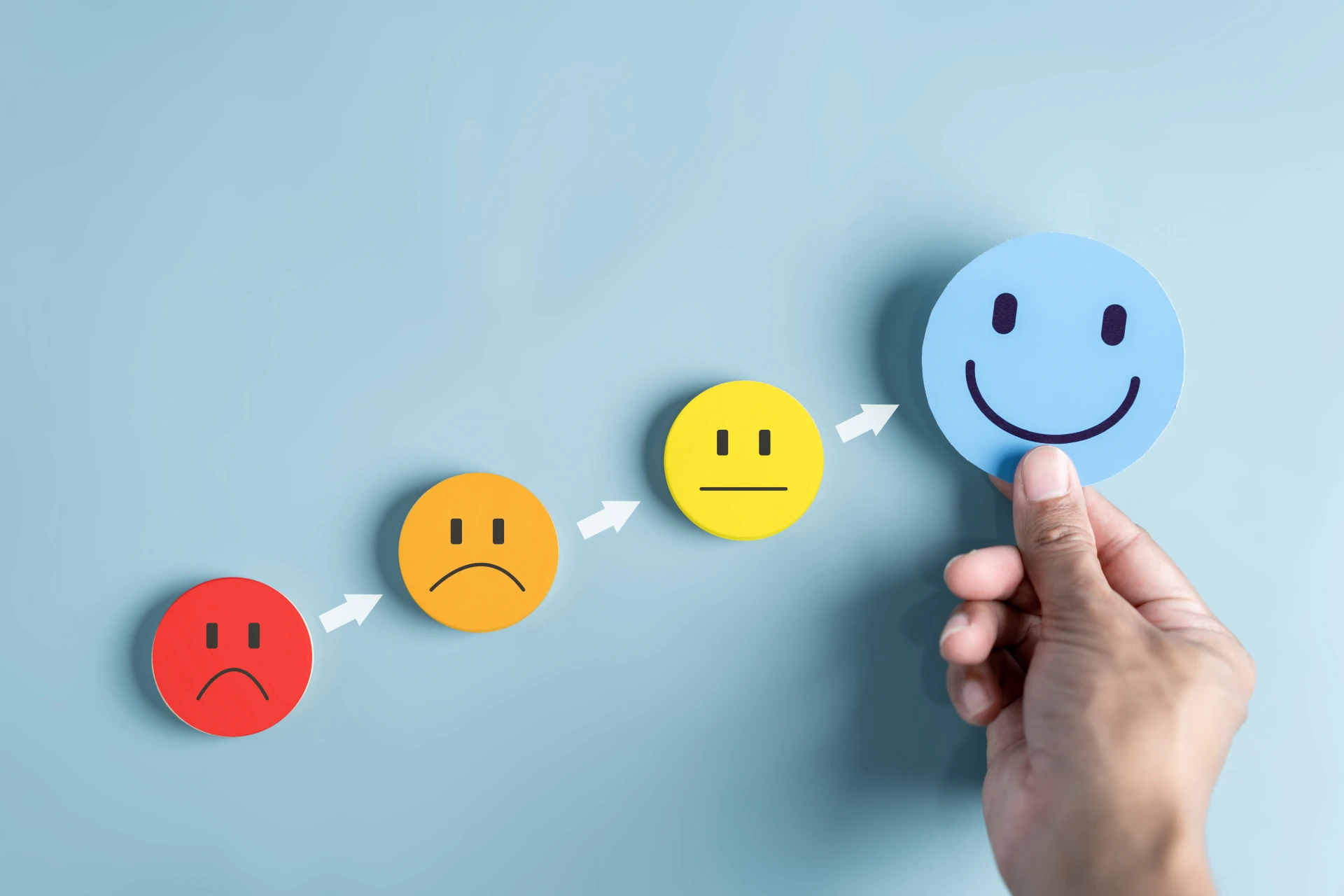We use cookies to help provide you with the best possible online experience.
By using this site, you agree that we may store and access cookies on your device. Cookie policy.
Cookie settings.
Functional Cookies
Functional Cookies are enabled by default at all times so that we can save your preferences for cookie settings and ensure site works and delivers best experience.
3rd Party Cookies
This website uses Google Analytics to collect anonymous information such as the number of visitors to the site, and the most popular pages.
Keeping this cookie enabled helps us to improve our website.
How Your GP Can Help With Your Mental Health | SDHC
Taking care of your mental health is incredibly important. One in four adults will experience mental health issues at some point in their lives. Therefore, understanding how your GP can support your mental health is crucial.
Although the stigma surrounding mental health is gradually decreasing, progress still needs to be made to break down barriers and ensure that everyone feels comfortable seeking help when they need it. So how can a GP help with mental health? Read on to find out.

How Can a GP Help with Mental Health
If you are experiencing mental health issues, there are many ways in which a GP appointment can help. Here is a brief overview of what a GP can do for you:
- Listen to your concerns - Dealing with mental health can make you feel isolated, especially if you have not spoken to anyone about your issues. A GP can help by allowing you to discuss your symptoms in a safe place and ask questions about any concerns you have. This can come as a relief to many people even before they begin treatment.
- Assess and diagnose your condition - Your GP will be able to make a full assessment of your condition and, depending on your mental health issue, will be able to diagnose your condition or refer you to a specialist. This is the first step to getting the treatment you need.
- Discuss your treatment options - During your appointment, a GP will be able to discuss the treatment options available to you. This can include medication or therapies such as CBT or talking therapies. They can answer any questions you might have and help you decide on which treatment is best for you.
- Prescribe medication - GPs are able to prescribe medication to help with certain mental health conditions, such as anxiety and depression. The GPs are unlikely to prescribe antidepressants for anyone under 18, however, due to NICE guidance in this area. However, if this is felt necessary then there is the option of referral.
- Provide information and support - A GP will be able to provide you with expert information on your condition, alleviate any concerns, and give you the details of the local support services available to you.
- Monitor your progress with follow-up appointments - You can schedule a follow-up appointment with your GP to monitor your progress, see how you're responding to treatment, and make adjustments as needed.
- Refer you to specialists - For more complex mental health issues and diagnosis of certain conditions (for example ADHD), your GP will refer you to a mental health specialist who can provide further assessment and treatment.
- Give lifestyle advice - Your GP will be on hand to discuss lifestyle changes that may benefit your mental health, offering guidance tailored to your specific needs. This could include exercise and dietary changes, along with ways to manage your conditions at home.

When Should You See a GP for Your Mental Health
Mental health conditions affect people of all ages and genders, but many people delay seeking help for various reasons. Unlike physical ailments, mental health issues can often be undiagnosed for a long time. You may be putting off seeing a GP because of the belief that it's not a common condition that they treat. But this is a huge misconception.
A study found that 40% of GP appointments involve a person's mental health. So when asking yourself how a GP can help with mental health it's important to understand that nowadays GPs are well versed in providing high quality mental health care.
Stress, anxiety, and depression are some of the most prevalent mental health conditions and are steadily increasing. But you can speak to your GP about any mental health issue you may be experiencing. Symptoms can manifest in many different ways and affect you both psychologically and physically.
If your mental health is impacting your daily life, then you should make an appointment with your GP as soon as possible. Neglecting mental health can exacerbate the problem and lead to other health issues down the track. Plus speaking to your GP is the first step in getting to the root cause of your problem and getting the right treatment for your condition.
Preparing for Your Appointment
To make the most of your appointment, it's helpful to prepare in advance, especially if it's your first time discussing your mental health with your GP. Here are some helpful tips for preparing for your appointment:
- Know what you want to say
GP appointments usually last between 10 to 30 minutes, so it's important to be able to articulate how you're feeling and the help you need clearly and concisely. Knowing what you want to discuss and the issues that are most concerning you. Writing down your thoughts can be helpful, especially if you're feeling nervous about your appointment:
- Consider what you wish to achieve from the appointment
When you take time out of your day to see a GP, you want to ensure that your time is well spent. You may get sidetracked or nervous during the actual appointment, so it's important to have an idea of what you want to achieve.
Are you looking for general advice about your mental health, information about different treatment options, or perhaps you want to discuss the lifestyle modifications you can make? Knowing what you want to get out of the appointment will make it a much more beneficial visit:
- Ask questions
If there's anything you're unclear about or if you want to find out more about your condition or treatment, don't hesitate to ask. GPs are there to help, so make sure you ask any questions you may have.
You don't want to leave your appointment feeling confused or wishing you had asked something more. Prepare a list of questions beforehand and don't hesitate to ask your doctor anything you're uncertain about. They'll be happy to explain.
Above all, remember to be open and honest about how you're feeling and the symptoms you're experiencing, and share all relevant information with your GP. What you discuss with your GP is completely confidential, and the more details you're able to share, the more effective and comprehensive care your GP can provide.
What to Expect at Your GP Appointment
Many people who are experiencing mental health issues put off seeking help for fear of being judged or unsure of what to expect. At SDHC we are committed to ensuring that everyone has access to high-quality healthcare when they need it. We offer both NHS GP appointments through our extended service and private GPs appointments that can be booked quickly and easily online.
Our GP clinic is conveniently located at Hampden Park Health Centre in Eastbourne, making it accessible to those in the East Sussex area.

So here’s what to expect when visiting our private Eastbourne health clinic:
When you arrive, simply sign in at the reception and take a seat in our comfortable and modern waiting area. From here, you will be promptly greeted by one of our experienced GPs and invited into one of our private consultation rooms to have a full discussion about your mental health.
We pride ourselves on offering a safe and supportive environment to discuss your mental health. If you would like someone to accompany you on your visit then you are more than welcome to bring them along.
Once we have a full picture of your situation and symptoms, doctors will then advise on the best course of action. Follow-up appointments or a specialist referral may be required before treatment is prescribed, but this will vary from person to person.
You can visit the NHS website to find out more about how to access NHS mental health services.
The Next Steps
If you are experiencing issues with your mental health and would like to speak to a healthcare professional you can easily book a private GP appointment online or if you can't find a suitable appointment time, give us a call on 01323 402790. Our friendly team of GPs are here to support you on your journey toward better mental health.
Published: Jul 18, 2024
